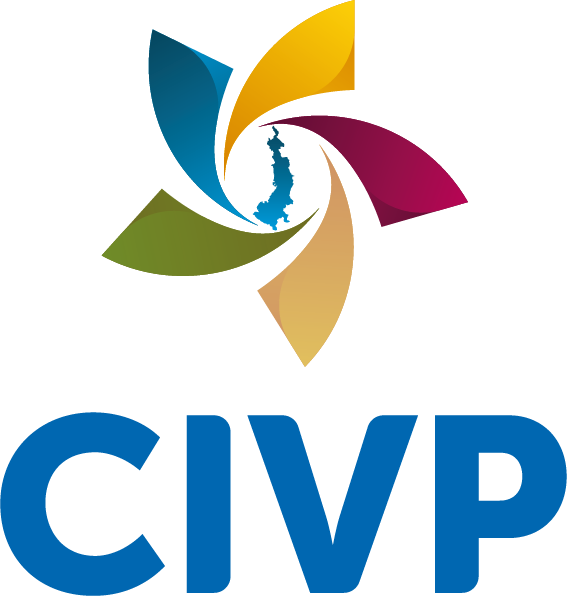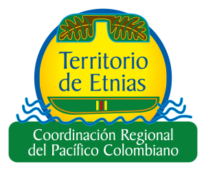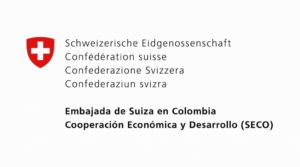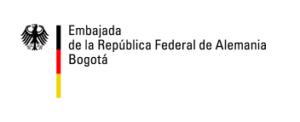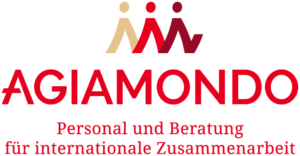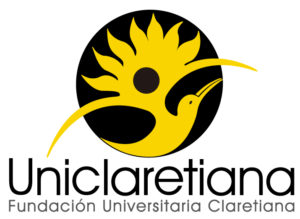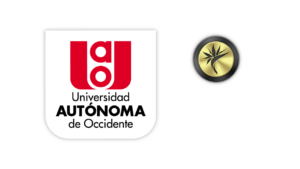La ONIC ha denunciado que los pueblos indígenas son “víctimas de un genocidio que (les) está forzando al exterminio físico y cultural”. Señala que “la situación de violencia y exterminio tiende a intensificarse a través de homicidios, desapariciones forzadas, desplazamientos forzados, reclutamientos forzados, violencia sexual, amenazas y demás delitos, generan afectaciones colectivas e individuales que perjudican de forma profunda a los 102 Pueblos Indígenas que existen en el país”. Tan sólo el 2% de la población colombiana es indígena, sin embargo representan el 7% de desplazados internos (CODHES). Según cifras del PNUD, el 70% de los niños indígenas colombianos sufre desnutrición crónica, y el 63% de la población indígena vive por debajo de la línea de pobreza. Ello a pesar de la riqueza de sus territorios en recursos naturales.
Esta situación se presenta por la guerra que los distintos actores armados (guerrilla, paramilitares, fuerza pública) se libran en sus territorios. También se debe a la explotación de las industrias extractivas y a los megaproyectos en sus territorios, que ponen en peligro sus fuentes de vida. En su informe anual presentado en abril de 2013, la Alta Comisionada de las Naciones Unidas para los Derechos Humanos (ACNUDH) señaló que “las decisiones relativas a la utilización y explotación de los recursos naturales suelen tomarse sin respetar el derecho a la consulta previa, sin el respeto debido a las autoridades y procedimientos tradicionales y sin ajustarse tampoco al contexto cultural específico”. La ACNUDH resaltó que luego de un “amplio proceso participativo” sobre el derecho a la consulta, “no se determinó la existencia de una sola buena práctica”. Recordó que “en el caso de los grupos en riesgo de extinción, el derecho a la consulta previa constituye no solo un derecho a la participación, sino también un mecanismo de veto para garantizar su supervivencia”.
Con ocasión del día internacional de los Pueblos indígenas, la Alta Representante de la UE para asuntos exteriores, Catherine Ashton, manifestó que “siempre que resulta relevante la UE menciona los derechos de los pueblos indígenas en sus diálogos políticos con países terceros y organizaciones regionales, y en foros multilaterales como las Naciones Unidas”. Sin embargo, el Tratado de Libre Comercio UE-Colombia que entró en vigor el 1ro de agosto podría agravar más aún la situación de los pueblos indígenas en Colombia. El TLC fue promovido y aprobado por la UE a pesar de las múltiples advertencias frente a este riesgo. “Desde Oidhaco, solicitamos a la UE, sus Estados miembros, Suiza y Noruega, que exijan al Gobierno colombiano el respeto del Convenio 169 de la OIT y de la Declaración de la ONU sobre los Derechos de los Pueblos Indígenas, y la adopción de medidas urgentes para proteger a los pueblos indígenas”, expresa Vincent Vallies, portavoz de la red de 35 organizaciones. “La vulnerabilidad extrema en que se encuentran las 102 etnias colombianas, exige de la comunidad internacional un paso firme para evitar su desaparición”, añade.
oidhaco hat anlässlich des internationalen Tages der indigenen Völker eine Presserklärung herausgebracht.
The international community must act to protect Colombian indigenous peoples from violence and killings
Of 102 indigenous peoples, 66 are at imminent risk of extinction. August 9 marked the International Day of Indigenous Peoples. However, the situation of indigenous peoples in Colombia does not leave much to celebrate.
According to the National Indigenous Organisation of Colombia (ONIC), between 2009 and 2012, 438 indigenous people were killed and more than were 22,000 forcibly displaced. Between January and July 2013, 23 were killed and 1,506 displaced. The ONIC reports that 66 indigenous people are about to disappear, some with populations of less than 500 inhabitants, 18 with less than 200 and 10 made up less than 100 individuals. The ONIC also reports that indigenous peoples are “victims of a genocide that is forcing cultural and physical extermination”. The organisation also notes that “the situation of violence and destruction is intensified through killings, enforced disappearances, forced displacement, forced recruitment, sexual violence, threats and other crimes, affecting the 102 indigenous peoples in Colombia both collectively and individually, and causing them serious harm”. Only 2% of the Colombian population is indigenous, yet they account for 7% of internally displaced persons (CODHES). According to UNDP figures, 70% of Colombian indigenous children suffer from chronic malnutrition, and 63% of the indigenous population lives below the poverty line. This is despite the wealth of natural resources in indigenous territories.
This situation is caused by the war that armed actors (guerrillas, paramilitaries and state security forces) are fighting in indigenous lands. Another cause is extractive industry projects and other mega projects being exploited in their territories, threatening their livelihoods. In its annual report of April 2013, the United Nations High Commissioner for Human Rights (OHCHR) noted that “decisions relating to the use and exploitation of natural resources are normally taken without respecting the right to prior consultation and without respect for the traditional authorities and procedures, nor in accordance with the specific cultural context”. OHCHR also noted that after a “broad participatory process” on the right to consultation, “not a single best practice was identified”. The Office also recalled that “in the case of groups at risk of extinction, the right to prior consultation constitutes not only a right to participation but also a veto mechanism to guarantee their survival”.
On the occasion of the International Day of Indigenous Peoples, the EU High Representative for Foreign Affairs, Catherine Ashton, stated that “The EU raises the rights of indigenous peoples wherever relevant in its political dialogues with third countries and regional organisations, and at multilateral forums such as the United Nations”. However, the EU-Colombia Free Trade Agreement (FTA) which came into force on August 1st could further aggravate the situation of indigenous peoples in Colombia. The FTA was promoted and approved by the EU despite the many warnings against this risk. “Oidhaco asks the EU, its Member States, and Switzerland and Norway, to call upon the Colombian government to respect ILO Convention 169 and the UN Declaration on the Rights of Indigenous Peoples, and to take urgent measures to protect indigenous peoples”, says Vincent Vallies spokesperson of this network of 35 organisations. “The extreme vulnerability in which the 102 Colombian ethnic groups find themselves demands decisive steps from the international community to prevent their disappearance”, he adds.
